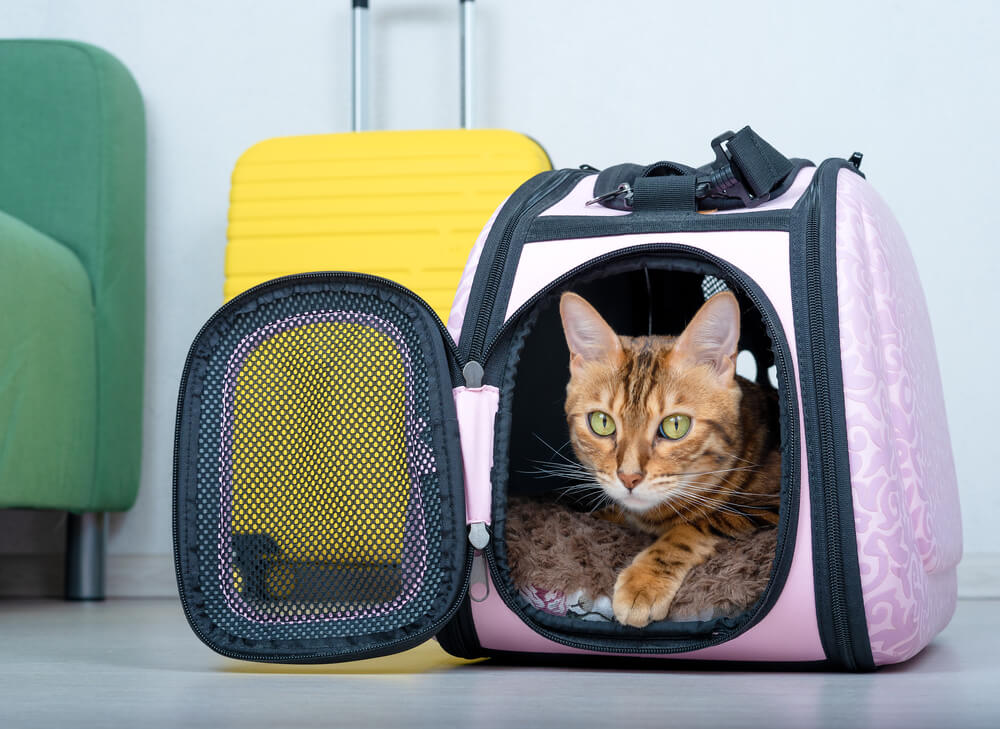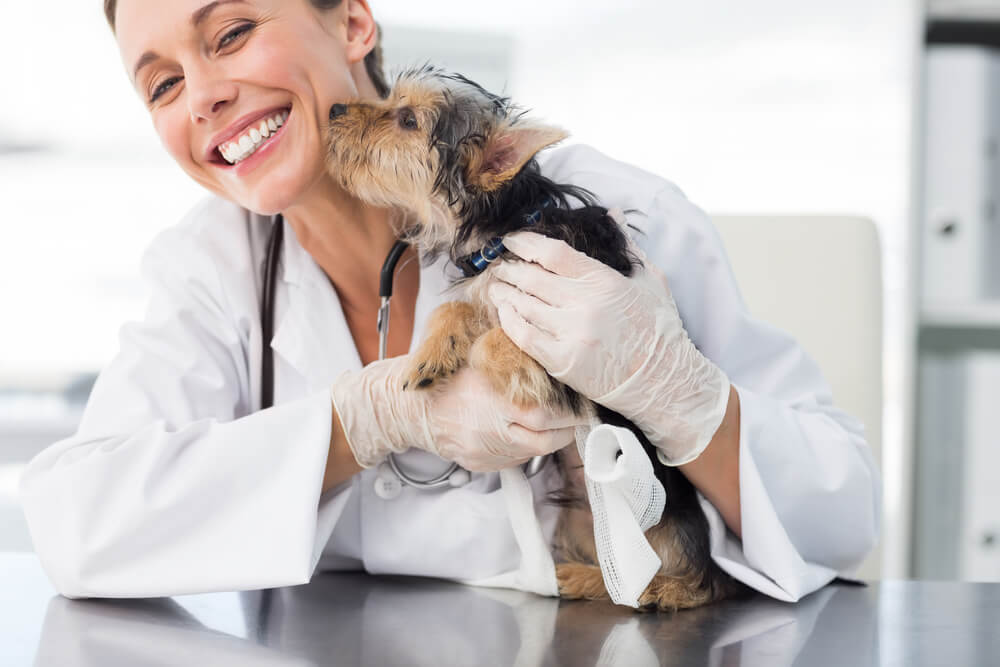The Fear Free program is designed to educate people who work with pets on how to recognize fear, stress, and anxiety in pets. They also learn methods to interact with pets that help the pet remain as stress-free as possible. This is important, because stressed pets are predisposed to injury and illness, and take longer to recover. Neighborhood Vets Mobile Care is Elite Fear Free-certified, which means we go above and beyond to alleviate your pet’s fear, anxiety, and stress. We would like to explain why Fear Free is beneficial for your pet.
What is Fear Free certification for pets?
Launched in 2016 by Dr. Marty Becker, the Fear Free’s mission statement is “to prevent and alleviate fear, anxiety, and stress in pets by inspiring and educating the people who care for them.” Many pets become stressed during certain circumstances such as veterinary visits, and the Fear Free program educates people on how best to approach pets, to ensure they remain as stress-free as possible. Five Fear Free Programs are available, including education modules for veterinary professionals, veterinary practices, animal trainers, pet groomers, shelters, and pet owners.
What is elite Fear Free certification for pets?
For veterinarians interested in excelling in their commitment to Fear Free, an elite certification is available to obtain a higher level of education about fear and anxiety in pets. Requirements include:
- Completing an individual veterinary certification program
- Completing 35 hours of Fear Free continuing education
- Completing four additional hours of Fear Free continuing education every year
- Maintaining an active Fear Free membership
Neighborhood Vets Mobile Care is proud that we are Elite Fear Free-certified to better care for you and your pets.
How do Fear Free-certified professionals recognize stress in pets?
The Fear Free program gives detailed information on how to read your pet’s body language, which allows us to determine when they are happy, stressed, fearful, or anywhere in between. A scoring system is used to evaluate your pet’s emotions, referred to as the fear, anxiety, and stress (FAS) spectrum:
- FAS 1 — Your pet is alert and excited, and possibly mildly anxious.
- Dogs — Dogs will look directly at the stimulus, and keep their mouth closed. Their eyes will be intense, their pupils slightly dilated, their brow tense, and their hair may be up slightly on the back and tail.
- Cats — Cats will avoid eye contact, turn their head away without moving, and hold their tail close to the body.
- FAS 2 — Your pet is moderately anxious, but not too upset.
- Dogs — Dogs will hold their ears slightly back or to the side, keep their tail down, be unable to to settle, pant with a tight mouth, and have moderate pupil dilation.
- Cats — Cats will hold their ears to the side, their pupils will be moderately dilated, their tail held tight to the body, and they will remain in a crouched position.
- FAS 3 — Your pet is anxious and starting to become upset.
- Dogs — Dogs will refuse treats, or take treats slowly, and may also hesitate to interact.
- Cats — Cats will look at the stimulus, with their whiskers back, and their tail tip moving slowly.
- FAS 4 — Your pet is extremely anxious.
- Dogs — Response options include excessively panting, running away, and tucking their tail, or becoming extremely tense, or freezing.
- Cats — Response options include actively trying to escape, dilated pupils, and puffed out tail, or a flattened, tense, and immobile body.
- FAS 5 — Your pet is extremely upset and may be ready to lash out.
- Dogs — Response options include lunging forward with their tail up, front teeth bared, and hair up over the shoulders. They may bare all their teeth, and crouch with their tail tucked.
- Cats — Response options include leaning forward with ears and whiskers forward, staring, and possibly growling, or ears back, lips pulled back, hissing, and possibly swatting.
How do Fear Free-certified professionals mitigate stress in pets?
Neighborhood Vets Mobile Care employs several techniques to help keep your pet as stress-free as possible during a veterinary visit.
- Environment — By coming to your home, our service allows your pet to forego the stressful car ride to the veterinary office. This also prevents your pet from encountering other potentially scary pets who could cause them further stress. Our smart tech mobile veterinary clinic is fully equipped to meet your pet’s needs.
- Approach — We read your pet’s body language, and then determine the best approach to ensure they remain calm. We keep our movements slow, and our voices low and measured, to let your pet know they are in a safe environment. We also try to never force your pet to do anything that makes them uncomfortable.
- Happy visits — You can schedule a happy visit, which involves a social call when your pet does not need veterinary attention. This is a great way for us to get to know your pet, and offer belly rubs and treats, to show them they should look forward to our visits. These visits are rarely needed in our mobile practice, because we come to you, and our visit is not preceded by a stressful car ride.
- “Chemical courage” — For pets who typically reach a FAS 4 or FAS 5, we may recommend mild sedation to help them relax, and allow our team to perform a thorough exam and administer any necessary care. We use only the safest medications and protocols, and have had much success with these techniques over the years.
How can I help reduce my pet’s stress?

As a conscientious pet owner, you want to do everything possible to make your pet’s veterinary visits as pleasant as possible. Actions you take prior to your pet’s visit can reduce their tension and set them up for success. Check out Fear Free’s client education resources to help you prepare for your pet’s upcoming visit.
Fear Free certification is extremely important to ensure your pet’s veterinary experience is as stress-free as possible, and our elite status allows us to offer exceptional care to your pet. If you would like to schedule a happy visit, so we can get to know your four legged friend, contact Neighborhood Vets Mobile Care today.

